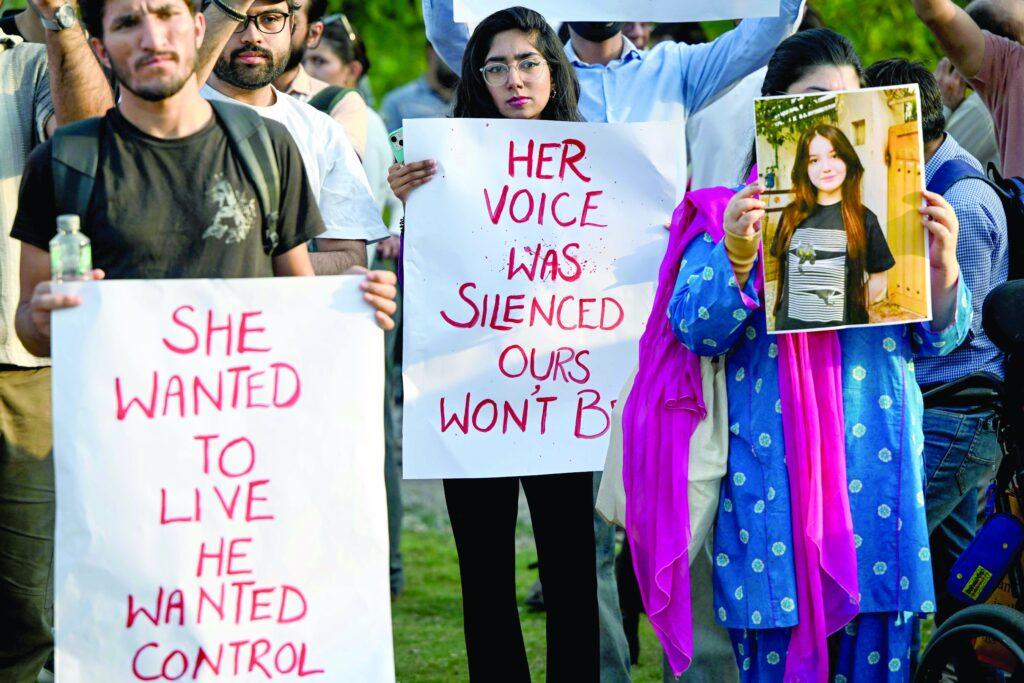Islamabad:
Since he saw thousands of comments that justify the recent murder of a Tiktok teenage star in Pakistan, Sunaina Bukhari is considering abandoning his 88,000 followers.
“In my family, it was not an accepted profession at all, but I had managed to convince them and even ended up establishing my own business,” he said.
Then, last week, healthy Yousaf was shot dead outside his home in the capital, Islamabad, a man whose advances had repeatedly rejected, police said.
The news of the murder led to an effusion of comments under its final publication: its 17th birthday celebration, where the candles of a cake exploded.
Among the condolence messages, some blamed her for her own death: “crops what you sow” or “is deserved, she was tarnishing Islam.”
Yousaf had accumulated more than one million followers on social networks, where he shared his favorite coffees, skin care products and traditional Shalwar Kameez costumes.
Tiktok is very popular in Pakistan, partly due to its accessibility to a population with low levels of literacy. In it, women have found audience and income, rare in a country where less than a quarter of women participate in the formal economy. But as Tiktok’s opinions have emerged, they also have efforts to monitor the platform.
Pakistani telecommunications authorities have repeatedly blocked or threatened to block the application about what it calls “immoral behavior”, in the midst of a violent reaction against LGBTQ and sexual content.
Tiktok has committed to a better moderate content and blocked millions of videos that do not meet the guidelines of their community, as well as at the request of the Pakistan authorities.
After the murder of Yousaf, Bukhari, 28, said that his family no longer supports his participation in the industry.
“I am the first influencer in my family, and maybe the last,” he told AFP.
Only 30 percent of women in Pakistan have a smartphone compared to twice men (58 percent), the largest gap in the world, according to the 2025 gender gap mobile report.
“Friends and family often discourage them to use social networks for fear of being judged,” said a Digital Right Foundation (DRF) statement.
In southwest Baluchistan, a man confessed to orchestrate the murder of his 14 -year -old daughter earlier this year for the Tiktok videos who said he committed his honor. In October, the police in Karachi, in the south, announced the arrest of a man who had killed four relatives for “indecent” Tiktok videos.
These murders revive the memories of Qandeel Baloch, one of the first social media stars in the country whose videos shot at fame. After years at the center of attention, she was suffocated by her brother.
Violence against women is generalized in Pakistan, according to the country’s human rights commission, and the cases of women attacked after rejecting men are not uncommon.
“This is not a crazy man, this is a culture,” said Kanwal Ahmed, who leads a closed Facebook group of 300,000 women to share advice. “Every woman in Pakistan knows this fear. Whether she is on Tiktok or has a private instagram with 50 followers, men appear. In her DMS. In her comments. On her street,” he wrote in a publication.
In the fifth most popular country in the world, where 60 percent of the population is under 30 years old, the director of the Bolo Bhi Digital Rights Organization, Usama Khilji, says that “many women do not publish their profile picture, but a flower, an object, very rarely their face.”
“The misogyny and patriarchy that prevails in this society is reflected in the online spaces,” he added. A 22 -year -old man was arrested for Yousaf’s murder and must appear before the court next week.




